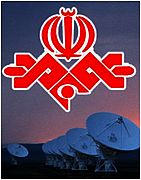Darabi Arrives to Implement “New Intentions”
» Changes at Radio and Television to Begin?
With the arrival of Ali Darabi to replace Morteza Mir-Bagheri, a change was made to the state radio and television broadcasting corporation’s most important deputy director’s position. The change was not unexpected given ayatollah Khamenei’s remarks last fall upon the reappointment of Ezatollah Zarghami at the helm of the state radio and television broadcasting corporation, when he said he expected to see “signs of change” in the first year of Zarghami’s reappointment.
According to Jame Jam daily, in his welcome ceremony Zarghami described Darabi as an “individual with precious media experience who can contribute to effectuating the new intentions at the organization.”
According to Alef website, affiliated with Ahmad Tavakkoli, Ali Darabi is “charged with leading nationwide networks toward professional development by fostering televised debates, criticism, and free discussions.” During Zarghami’s first appointment, Darabi was a member of the radio and television broadcasting corporation’s policy council before being appointed to head the corporation’s provincial and parliamentary affairs divisions.
Darabi, who held close ties with seventh Majlis lawmakers, holds a PhD in political science. He believes that “the Iranian nuclear case is a case initiated by imperialism against the Islamic Republic. Defending terrorism, violating human rights, suppressing freedoms and defending prisoners rights, interference in other countries’ affairs, discrimination and other limitations related to women’s rights are among other cases in international organizations and institutions that imperialist powers who control them do not intend to close them.”
Previously in an article titled, “The Line of Imam, from Claim to Reality,” Darabi had written that more than 85 percent of participants in the tenth presidential election (in 2009) had voted for Ahmadinejad, as the “people’s elected and selected president”¾writing that the election “was a gigantic success that could have prepared a golden and unprecedented opportunity for the Islamic Republic, in both domestic and foreign areas, and could perhaps have resolved 30-year knots formed since the Islamic Republic. But alas, certain individuals and factions that received a giant “No” from the people joined forces with others under the banner of certain defeated candidates to fan the flame of ‘election fraud’ and make the victory bitter for the great Iranian nation. Undoubtedly, the main role of foreign spy agencies and propaganda machines in the fiasco will become clearer and clearer over time.”
He finished the article by concluding that the “conspiracy movement and its supporters have no relation to the Imam and act in contradiction to the Imam’s actions and ideas.” That was one of the largest lessons of the June 2009 presidential election.
Ali Darabi is said to be an influential member of the Isargaran party, which is also referred to as the supreme leader’s party.

